🌻 Global Sunflower Seed Supplier | Organic & Conventional – Bakery & Snack Grade

Formats: Hulled, In-Shell, Roasted, Organic, Confectionary Grade
Certifications: USDA/EU Organic, Kosher, Halal, Non-GMO
Origins: Bulgaria, Ukraine, China, Argentina, USA
Rich in: Vitamin E, Healthy Fats, Plant Protein, Magnesium
Use Cases: Snacks, cereals, bakery, nut butters, granola, bird feed
At NNRV, we supply premium sunflower seeds to food manufacturers, snack brands, health retailers, and agricultural distributors worldwide. Available in organic and conventional, hulled or in-shell, our sunflower seeds are packed with nutrients and ready for direct consumption or industrial transformation.
With strict quality control, full traceability, and flexible packaging, we deliver bulk and retail-ready solutions tailored to your supply chain needs.
🌍 Sunflower Seed Formats & Applications
| Type | Description | Ideal For |
|---|---|---|
Raw Hulled (Bakery Grade)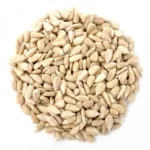 | De-shelled, lightly cleaned | Bread, cereals, granola, bars |
Roasted Hulled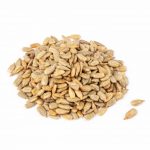 | Ready-to-eat, lightly salted/plain | Healthy snacks, nut blends, toppings |
In-Shell (Confectionary Grade)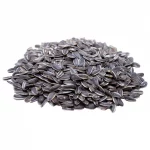 | Large, striped seeds | Roasting, direct snack, bird feed |
Organic Hulled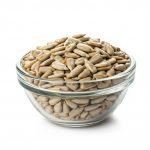 | Certified EU/USDA organic, non-GMO | Organic brands, clean-label foods |
Pressing Grade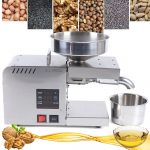 | High oil content | Cold-pressed sunflower oil |
📊 Technical Specifications
| Parameter | Hulled Seeds | In-Shell Seeds |
|---|---|---|
| Purity | ≥99.95% | ≥99% |
| Moisture | ≤8% | ≤10% |
| FFA (Fatty Acids) | ≤1.5% | – |
| Oil Content | 40–52% | 35–45% |
| Shelf Life | 12–18 months | 6–12 months |
| Grades | Bakery, Snack, Feed | Confectionary, Feed |
📦 Packaging Options
| Format | Size Range | Target Market |
|---|---|---|
| PP Bags | 20–50 kg | Industrial processors, oil mills |
| Vacuum Packs | 10 kg / 25 kg | Long-term storage, exporters |
| Retail Pouches | 150g–1 kg | Supermarkets, health food stores |
| Big Bags / Totes | 500–1000 kg | Bulk handlers, feed distributors |
| Private Label Packs | Custom | Snack brands, organic shops |
📑 Included Documentation
Every order includes:
Certificate of Origin
EU/USDA Organic Certificate (if applicable)
Pesticide Residue Report
Phytosanitary Certificate
Packing List & Commercial Invoice
SGS/Bureau Veritas Inspection (optional)
✅ Storage Tip: Keep sealed in a cool, dry place (≤15°C) to maintain crunch and prevent rancidity.
🔄 Sourcing Process
1️⃣ Specify Your Needs: Type, origin, format, organic/conventional
2️⃣ Receive Your Quote: CIF/FOB pricing, spec sheets, MOQ
3️⃣ Confirm & Pay: Payment via LC, SBLC, or T/T
4️⃣ Packing & Shipping: Cleaned, sorted, packed, and loaded
5️⃣ Support: Post-shipment assistance and reorder facilitation
🌟 Why Choose NNRV for Sunflower Seeds?
🌻 Wide Variety: Hulled, in-shell, roasted, organic & conventional
🌍 Global Sourcing: Bulgaria, Ukraine, Argentina, USA & more
🧪 Strict QA: Low moisture, high purity, aflatoxin-tested
🏷️ Flexible Formats: From bulk PP bags to branded snack pouches
🌱 Sustainability: Clean-label ready, non-GMO & eco-conscious
💬 Client Success Stories
🥖 Bakery Chain (Germany)
Replaced sesame with hulled sunflower seeds in loaves—boosted protein content and customer appeal.
🥜 Snack Brand (Middle East)
Launched roasted sunflower seeds in 100g packs under their clean-label line—grew sales 40% in Q2.
❓ FAQs
Q: Do you offer certified organic sunflower seeds?
A: Yes, we supply USDA/EU certified organic hulled and in-shell sunflower seeds.
Q: What’s your typical MOQ?
A: 1 MT for bulk; 500 kg for retail-ready formats.
Q: Are your seeds allergen-tested?
A: Yes, all batches are tested for cross-contamination with major allergens.
Q: Can you help with private label packaging?
A: Absolutely—retail pouches with your branding are available.
🚀 Get Started – Request Your Quote Today!
Whether you’re crafting snack mixes, granola bars, or health products, NNRV offers top-grade sunflower seeds to power your production with quality and consistency.
📩 Contact Us Now – Your Trusted Sunflower Seed Export Partner.
Sunflower Seed Cultivation & Global Growing Conditions
From Field to Fork – Organic & Conventional Sunflower Seeds | Optimal Growth Regions | Agricultural Insights
Introduction: Understanding Sunflower Cultivation
Sunflower (Helianthus annuus) is a versatile crop grown for seeds used in food, oil production, and animal feed. Its cultivation requires careful attention to soil, climate, and agronomic practices to ensure high yield, seed quality, and nutrient content.
Sunflower seeds supplied by NNRV come from optimal growing regions and are available in:
- Hulled or in-shell
- Organic or conventional
- Snack, bakery, or industrial oil grades
How Sunflowers Are Cultivated
Successful sunflower cultivation involves several key steps:
- Soil Preparation: Well-drained loamy soil with pH 6–7.5 is ideal. Sunflowers tolerate light salinity but require deep soils for root expansion.
- Seed Selection: Certified, high-vigor seeds (organic or conventional) ensure uniform germination and strong plant growth.
- Sowing: Spring or early summer, depending on region. Row spacing varies 45–75 cm, seed depth 2–4 cm for optimal emergence.
- Water & Fertilization: Moderate irrigation needed; sunflowers are drought-tolerant but responsive to water. Balanced NPK fertilization supports high oil content and seed size.
- Pest & Disease Management: Monitor for insects (sunflower beetles, aphids) and diseases (downy mildew, rust). Integrated pest management (IPM) is recommended.
- Harvesting: Seeds harvested when moisture reaches 8–10% for hulled seeds. Mechanical harvesters or combine machines ensure efficiency.
Optimal Regions for Sunflower Growth
Sunflowers thrive in temperate to continental climates with full sun exposure. Key growing regions include:
- Europe: Bulgaria, Romania, Ukraine – long sunny days, fertile soils, high oil content varieties.
- Asia: China, India – suitable for organic and conventional seeds, large-scale production areas.
- Americas: Argentina, USA – extensive plains, mechanized farming, high yield potential.
- Other regions: Some African countries and Central Asia – ideal for drought-resistant varieties.
Microclimates, rainfall patterns, and soil fertility are critical factors that influence yield, seed size, and oil percentage.
Practical Agricultural Considerations
- Crop Rotation: Prevents soil nutrient depletion and reduces pest incidence.
- Organic vs Conventional: Organic requires certified seeds, natural fertilizers, and strict pesticide control.
- Mechanization: Use of modern machinery ensures uniform planting, irrigation, and harvesting.
- Quality Control: Field sampling for moisture, germination rate, and pest-free crops before processing.
- Post-Harvest Handling: Drying, cleaning, sorting, and storage in cool, dry conditions preserves nutritional value and prevents rancidity.
Why NNRV Sunflower Seeds Stand Out
- Globally sourced from top agricultural regions
- Organic and conventional options available
- High purity, vitamin E and protein-rich seeds
- Flexible packaging: bulk, retail-ready, private label
- Full traceability and quality assurance (SGS/Bureau Veritas certified)
Frequently Asked Questions
- Which soil type is best for sunflower cultivation?
- Loamy, well-drained soils with pH 6–7.5 are ideal. Deep soils support strong root systems and higher yields.
- Can sunflowers grow in arid regions?
- Yes, drought-resistant varieties adapt well, but moderate irrigation improves seed size and oil content.
- What are the best climates for sunflower growth?
- Temperate to continental climates with full sun; long daylight hours promote flowering and seed development.
- How is organic sunflower farming different?
- Organic farming avoids synthetic pesticides and fertilizers, uses certified organic seeds, and follows strict compliance rules.
- When should sunflowers be harvested?
- When seed moisture is 8–10% for hulled seeds, usually at the end of summer or early autumn depending on the region.
- What pests and diseases affect sunflower crops?
- Common pests include sunflower beetles and aphids; diseases include rust and downy mildew. Integrated Pest Management is recommended.
- How does NNRV ensure seed quality?
- Through SGS/Bureau Veritas inspection, moisture and oil content testing, aflatoxin monitoring, and traceable sourcing.
- Which countries supply NNRV sunflower seeds?
- Bulgaria, Ukraine, China, Argentina, USA, and other regions depending on quality and crop availability.
- Can seeds be supplied in different formats?
- Yes – hulled, in-shell, roasted, organic, and confectionary grades with bulk or retail packaging.
- How should sunflower seeds be stored?
- Keep sealed in a cool, dry place (≤15°C) to maintain crunch, prevent rancidity, and preserve nutrients.
Get Premium Sunflower Seeds Today
Whether for baking, snacks, oil production, or health products, NNRV provides globally sourced, certified sunflower seeds tailored to your needs.
- Organic and conventional options
- Hulled, in-shell, roasted, or confectionary grades
- Flexible bulk and retail-ready packaging
- Full documentation and traceability included
📩 Contact us now to request a quote and secure your premium sunflower seeds supply.
Sunflower Seed Processing & 50 Finished Products
From Raw Seed to Market – Oil, Snacks, Bakery, Health Products, and Industrial Applications
Introduction: Turning Sunflower Seeds into Value
Sunflower seeds are versatile raw materials. Through careful cleaning, roasting, pressing, and refining, they can be transformed into a wide range of high-value food, health, and industrial products. Proper processing preserves nutrients, flavor, and oil quality while meeting international food and safety standards.
Step-by-Step Sunflower Seed Processing
- Cleaning & Sorting: Remove stones, husks, dirt, and foreign materials using sieves, gravity separators, and air classifiers.
- Dehulling (Hulling): Remove shells for hulled seeds used in bakery, snacks, and oil extraction.
- Roasting: Light, medium, or dark roasting for flavor enhancement, suitable for snack products.
- Grinding: Crush seeds for pastes, flours, or oil extraction.
- Cold Pressing: Mechanical extraction of sunflower oil with minimal heat to retain nutrients.
- Refining & Filtering: Remove impurities, waxes, and free fatty acids to produce clear, edible oil.
- Packaging: Bulk bags, retail packs, or private-label containers with labeling and traceability.
- By-product Handling: Seed cake, hulls, and meal can be used for animal feed, biofuel, or industrial applications.
- Quality Control: Moisture, oil content, aflatoxin testing, and organoleptic assessment to meet standards.
- Storage & Logistics: Maintain cool, dry, pest-free storage to prevent rancidity and preserve shelf life.
50 Finished Products Derived from Sunflower Seeds
Sunflower seeds can be transformed into a wide array of products across food, health, and industrial sectors.
- Raw Hulled Seeds – bakery grade
- Raw Hulled Seeds – snack grade
- Roasted Hulled Seeds – lightly salted
- Roasted Hulled Seeds – plain/natural
- In-Shell Seeds – snack grade
- In-Shell Seeds – bird feed
- Organic Hulled Seeds – USDA/EU certified
- Organic In-Shell Seeds
- Cold-Pressed Sunflower Oil
- Refined Sunflower Oil
- High-Oleic Sunflower Oil
- Sunflower Oil for Frying
- Sunflower Oil Blends (with other oils)
- Sunflower Seed Butter – smooth
- Sunflower Seed Butter – crunchy
- Sunflower Seed Flour – gluten-free baking
- Sunflower Protein Powder
- Sunflower Meal – animal feed
- Sunflower Seed Cakes – livestock feed
- Sunflower Hull Pellets – biomass fuel
- Sunflower Seed Granola Mixes
- Energy Bars with Sunflower Seeds
- Trail Mix – seeds and nuts blend
- Confectionery Seeds – chocolate-coated
- Sunflower Seed Snacks – roasted & salted
- Sunflower Seed Snacks – spicy or flavored
- Sunflower Seed Toppings – bakery & pastries
- Sunflower Seed Garnish – salads
- Sunflower Seed Powder – smoothies & health drinks
- Sunflower Oil Capsules – dietary supplements
- Sunflower Lecithin – emulsifier for food
- Sunflower Seed Paste – traditional recipes
- Sunflower Seed Tahini
- Sunflower Seed Chocolate Bars
- Sunflower Seed Cookies & Biscuits
- Sunflower Seed Bread & Buns
- Sunflower Seed Muffins
- Sunflower Seed Crackers
- Sunflower Oil Soap
- Sunflower Oil Cosmetics – creams & lotions
- Sunflower Oil Hair Products
- Sunflower-Based Margarine
- Sunflower Oil Biodiesel
- Sunflower Oil Industrial Lubricants
- Sunflower Oil Candle Making
- Sunflower Seed Protein Bars
- Sunflower Seed Smoothie Packs
- Sunflower Seed Pet Treats
- Sunflower Seed Bird Feed Mixes
- Sunflower Seed Bulk Export Packs
- Sunflower Seed Private Label Snacks
- Sunflower Oil Culinary Bottles (250ml–1L)
- Sunflower Seed Specialty Gourmet Mixes
These products are suitable for food manufacturers, health retailers, snack brands, and industrial users.
FAQs – Processing & Products
- What is the difference between hulled and in-shell seeds?
- Hulled seeds have their shells removed for direct consumption, baking, or oil extraction, while in-shell seeds are used for snacks or bird feed.
- How is sunflower oil extracted?
- Through cold pressing or mechanical pressing followed by optional refining and filtering to produce edible oil.
- Can sunflower seeds be used for organic products?
- Yes, USDA/EU certified organic seeds are available for snacks, oil, and bakery applications.
- What by-products are generated during processing?
- Seed cake, meal, and hulls can be used for animal feed, biofuel, or industrial applications.
- How is product quality ensured?
- Through moisture control, purity checks, aflatoxin testing, and third-party inspections.
- Can sunflower seeds be private-labeled?
- Yes, retail-ready packs or bulk packaging can be branded for clients.
- Are there specialty oils available?
- Yes – high-oleic, cold-pressed, and culinary-grade refined sunflower oils.
- What is the shelf life of sunflower products?
- Seed and oil shelf life varies: hulled seeds 12–18 months, in-shell 6–12 months, oils up to 12 months depending on storage.
- Can sunflower protein be used in vegan products?
- Absolutely – sunflower protein powder is suitable for vegan bars, smoothies, and plant-based diets.
- How many formats are available for export?
- Bulk bags, vacuum packs, retail pouches, big bags/totes, and private-label options.
Transform Your Sunflower Seeds Into Market-Ready Products
NNRV helps you source, process, and distribute sunflower seeds for a wide range of food, health, and industrial applications. From raw seeds to 50 finished products, we provide full traceability, quality assurance, and global logistics support.
📩 Contact us now to explore processing options and request your bulk or private-label sunflower products.
Sunflower Seed Processing Facilities: 10 Leading Plants, Methods & Financing
Global Production – From Seed to Oil, Snacks, and Industrial Applications
Introduction: Setting Up and Operating Sunflower Processing Plants
Sunflower seeds require specialized processing to convert raw seeds into high-value products such as oil, roasted snacks, protein powders, and bakery ingredients. Efficient facilities are designed to maintain quality, reduce waste, and comply with international food safety standards. This article explores 10 model processing plants, processing methods, operational structures, and financing strategies.
Top 10 Sunflower Seed Processing Facilities Globally
-
Bulgaria – Sofia Sunflower Oils
Specializes in cold-pressed and refined sunflower oil for EU markets. Features modern dehulling and roasting lines. ISO 22000 & HACCP certified.
-
Ukraine – Odessa Agro Processing
Large-scale facility producing hulled seeds, oil, and protein meal. Focused on export to Europe and MENA. High-efficiency screw press and solvent extraction units.
-
China – Shandong Sunseed Co.
Produces roasted snack seeds and oil. Equipped with automated cleaning, sorting, roasting, and vacuum packaging lines. Focus on domestic and Asian markets.
-
Argentina – Buenos Aires Seed Mills
Integrated plant for oil extraction, seed roasting, and hull pellet production. Large-scale cold-press facilities with by-product valorization for animal feed.
-
USA – Kansas Sunflower Products
Focus on snack-grade seeds and sunflower butter. HACCP certified with advanced roasting, grinding, and packaging systems.
-
India – Maharashtra Oil & Seeds
Mid-size facility for oil and paste production. Steam dehulling and mechanical pressing. Export-ready with organic and conventional lines.
-
Malaysia – Kuala Lumpur AgroTech
High-oleic sunflower oil production. Fully automated pressing, refining, and bottling. Serves culinary, health, and cosmetics industries.
-
Russia – Rostov Sunseed Plant
Large crushing facility for oil and feed. Solvent extraction units and protein concentrate production. Integrated storage and logistics hub.
-
South Africa – Cape Sunflower Mills
Produces hulled seeds, roasted snacks, and sunflower cake for livestock feed. ISO & HACCP certified, sustainable sourcing policies.
-
Egypt – Alexandria Seed Processing
Focus on in-shell seeds for snacks and bird feed. Modern cleaning, roasting, and vacuum packaging lines. Supplies both domestic and MENA markets.
Processing Methods Across Facilities
- Cleaning & Sorting: Sieves, gravity separators, destoners, and air classifiers to ensure high purity.
- Dehulling: Mechanical or steam-assisted removal of shells for hulled seed production.
- Roasting: Drum or hot-air roasting for flavor enhancement and shelf-life extension.
- Grinding & Paste Formation: For sunflower butter, protein powder, and bakery fillings.
- Cold Pressing: Low-temperature oil extraction to preserve nutrients and flavor.
- Solvent Extraction: High-efficiency oil recovery from seed cake for industrial or culinary use.
- Refining & Filtering: Degumming, bleaching, and deodorizing for clear, edible oil.
- Packaging & Labeling: Vacuum packs, bulk totes, retail pouches, and private label solutions.
- By-product Utilization: Seed cake for animal feed, hulls for biofuel or industrial fillers.
- Quality Control: Moisture, oil content, aflatoxin, microbiological and organoleptic tests.
Typical Plant Structure & Layout
Most modern sunflower processing plants include:
- Raw Material Intake: Storage silos, conveyors, and initial cleaning lines.
- Processing Area: Dehulling, roasting, pressing, and grinding zones.
- Refining & Quality Control: Oil refining units, QC laboratories, and testing stations.
- Packing & Storage: Automatic bagging machines, labeling lines, and bulk storage for finished goods.
- Utilities & Support: Boiler rooms, water treatment, compressed air, and energy backup systems.
- Administrative Area: Offices, control room, and logistics coordination.
- By-product Management: Pelletizers, crushers, and storage for cake/hulls.
Financing Sunflower Processing Plants
Plant setup and operation require significant investment. Common financing options include:
- Equity Investment: Private or corporate investors fund construction and initial operations.
- Bank Loans: Term loans or working capital facilities for plant equipment and raw seed procurement.
- Project Financing: Secured against future sales and receivables; often structured for export-oriented plants.
- Supplier Credit: Equipment or raw seed suppliers extend deferred payment or leasing options.
- Government Grants & Subsidies: Agricultural or industrial incentives for organic, sustainable, or export-focused production.
- Joint Ventures: Partnerships with downstream users (oil, snacks, bakery) to share investment and risk.
- Export Credit Agencies: Support for plants serving international markets with favorable lending terms.
FAQs – Processing Facilities & Financing
- What is the minimum size for a sunflower processing plant?
- Small-scale plants start at 5–10 MT/day; industrial plants range from 50–500 MT/day.
- How much does it cost to build a processing plant?
- Costs vary: small plant $500k–$1M; large-scale industrial facility $5–15M, depending on technology and automation level.
- Which countries have favorable setups?
- Bulgaria, Ukraine, Argentina, USA, China, India, Malaysia, Russia, Egypt, South Africa – due to seed availability and export logistics.
- What processing method is best for premium oil?
- Cold-pressing followed by light refining preserves nutrients, flavor, and high oleic content.
- Can by-products generate revenue?
- Yes – seed cake, protein meal, and hulls can be sold for animal feed, biofuel, or industrial fillers.
- How is quality maintained across multiple plants?
- Through standardized SOPs, ISO/HACCP certifications, laboratory testing, and continuous staff training.
- Are joint ventures common in sunflower processing?
- Yes – collaborations with snack manufacturers, oil bottlers, or feed companies reduce risk and secure offtake agreements.
- Is export financing available?
- Yes – through banks, export credit agencies, and structured project financing instruments.
- How long does it take to set up a plant?
- Typically 6–18 months for small to medium plants; large industrial facilities may require 18–36 months.
- Are there environmental considerations?
- Yes – proper waste handling, energy efficiency, emissions control, and water treatment are essential for compliance.
Start Your Sunflower Processing Venture
NNRV Trade Partners provides advisory, financing, and logistics support to establish, expand, or optimize sunflower seed processing facilities. From plant design to equipment selection and export-ready production, we help investors and entrepreneurs maximize returns while maintaining quality and compliance.
📩 Contact us now to explore plant options, financing strategies, and global market opportunities.
Global Sunflower Seed Market: Production, Trade, Sustainability & Future Outlook
Top Producers, Exporters, Importers – Quality Control, Traceability & Strategic Insights
Introduction: Why Sunflower Seeds Are Critical Globally
Sunflower seeds are a key agricultural commodity, used for edible oil, snacks, bakery products, animal feed, and industrial applications. Growing global demand for plant-based oils, protein-rich snacks, and sustainable agriculture makes sunflower seeds increasingly important for food security, health, and trade.
This article provides an in-depth look at global production, trade flows, traceability, sustainability, certifications, quality controls, and strategic market insights for investors, producers, and buyers.
Top 20 Sunflower Seed Producing Countries (2024 estimates)
- Ukraine – 16.5M MT
- Russia – 15.2M MT
- Argentina – 3.8M MT
- European Union (total) – 3.5M MT
- Turkey – 1.8M MT
- USA – 1.2M MT
- China – 1.0M MT
- India – 0.9M MT
- Bulgaria – 0.75M MT
- Romania – 0.7M MT
- Canada – 0.6M MT
- South Africa – 0.55M MT
- Egypt – 0.45M MT
- Mali – 0.4M MT
- Kazakhstan – 0.35M MT
- Pakistan – 0.32M MT
- Australia – 0.3M MT
- Morocco – 0.28M MT
- Iran – 0.25M MT
- Ukraine (organic) – 0.2M MT
Top 20 Sunflower Seed Exporters
- Ukraine
- Russia
- Argentina
- European Union (Germany, France, Spain)
- Bulgaria
- Romania
- Turkey
- USA
- China
- India
- Canada
- South Africa
- Egypt
- Australia
- Mali
- Kazakhstan
- Belarus
- Poland
- Italy
- Brazil
Top 20 Sunflower Seed Importers
- European Union (Italy, Spain, Germany)
- China
- Turkey
- Egypt
- India
- Netherlands
- Poland
- France
- South Korea
- Japan
- USA
- Saudi Arabia
- UAE
- Israel
- Vietnam
- UK
- Canada
- Morocco
- Lebanon
- Pakistan
Global Production & Trade Statistics
- Total global production: ~45M MT annually
- Global exports: ~15M MT
- Global imports: ~14.8M MT
- Average oil content: 40–52%
- Average protein content: 20–24%
- Projected demand growth 2025–2030: +5–7% CAGR
- Sunflower oil accounts for ~12% of global edible oil market
Traceability, Certifications & Quality Control
- Full Traceability: Seed origin, processing facility, batch number, and shipping history tracked via digital platforms.
- Organic Certifications: USDA Organic, EU Organic, JAS (Japan), India Organic.
- Food Safety: ISO 22000, HACCP, FSSC 22000, BRC certification.
- Quality Checks: Moisture content, oil content, aflatoxin levels, microbial contamination, color and size uniformity.
- Sustainability: Non-GMO, eco-friendly farming, reduced water and energy footprint, ethical sourcing practices.
- Industry Compliance: Kosher, Halal, and allergen-free declarations for international markets.
Strategic Insights & Future Importance
Sunflower seeds are poised to become increasingly critical due to:
- Growing plant-based diet trends and demand for vegetable oils.
- Rising use in high-protein snacks, bakery, cereals, nut butter, and functional foods.
- Opportunities in sustainable and organic agriculture sectors.
- Expansion of value-added processing like cold-pressed oil, roasted snacks, and protein concentrates.
- Increased trade flows and diversification to emerging markets.
- Integration with industrial and biofuel applications using by-products.
Strategically, businesses should focus on:
- Building vertically integrated supply chains from seed to finished product.
- Securing organic and non-GMO certification to access premium markets.
- Investing in processing plants near production hubs to reduce logistics costs.
- Implementing digital traceability and QC systems to ensure compliance and buyer trust.
- Diversifying export destinations to reduce market risk.
- Leveraging sustainability and ESG branding as a market differentiator.
Join the Global Sunflower Seed Market
NNRV Trade Partners connects producers, processors, and buyers worldwide. From sourcing, certification, and quality assurance to logistics and financing, we provide end-to-end support for global sunflower seed trade.
📩 Contact us today to secure supply, explore new markets, or optimize your sunflower seed operations with traceable, sustainable, and premium-grade products.